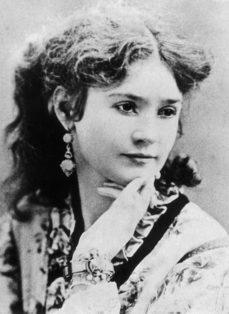Enter now to win a copy of
Love Lessons from the Old West: Wisdom from Wild Women

In September 1884, six weary journalists spent three unusually hot and humid days loitering around the New York harbor waiting for the world famous entertainer Lotta Crabtree to arrive. Lotta was on her way to the city where she had perfected her career. The moment her steamship docked, the scribes rifled through their pockets for pencils and notepads. They scribbled Lotta’s name across the tops of their notepads while anxiously waiting for her to appear. She had been away from the area for several years, performing on stages in New York, London, and Paris.1
Devoted fans, curious about what she would say when she stepped off the steamship America and looked around at the city that favored her, had gathered at the harbor. That her remarks would be voluminous, spirited, and to the point, no reporter or fan doubted. Journalists had been furnished with a little information about what she would say from her energetic manager, J. K. Tillotson. Tillotson had sent a short message to several newspaper editors across the country informing them that Lotta would make mention of her time abroad and address rumors that she had married in France. Reporters familiar with Lotta’s mother, Mary Ann Crabtree, thought it highly unlikely the red-headed star would have been allowed to do such a thing, but they had to be sure.2
Mary Ann was the quintessential stage mother. She was dedicated to seeing that Lotta became the best, most beloved actress on any stage. Toward that effort she had halted every romantic overture young men had made toward her daughter. Falling in love and getting married could interfere with the success Lotta worked so long and hard to achieve.3
Lotta was among the men and women making their way down the gangplank when the steamship finally docked and the passengers disembarked. According to various newspaper accounts, the thirty-seven-year-old star “looked very unassuming and was clothed like a little English servant girl out for a Sunday, in a loose blue dress without a suspicion of crinoline and a meek little Quaker bonnet. The only feature about the little lady which suggested her profession was her extraordinary red hair.”4
Lotta was greeted by a dozen or so lady fans that presented her with flowers and kissed her cheeks. The six weary reporters gathered around Lotta, and she looked up with surprise just as another woman was welcoming her with a kiss. “Miss Lotta,” a scribe said, ambling forward, the September 4, 1884, edition of the San Francisco Call reported. “I’m a representative of the press come to interview you. These are my colleagues. We want to write up something you will like.”
“I’ve nothing to say,” Lotta told them coldly. “Nothing whatsoever. Good afternoon.”5
“Miss Lotta,” said another,” “Mister Tillotson, your manager, wrote us letters about your arrival. Now, Miss Lotta, let us hear of your experiences. What of your recent nuptials?”
“Really,” said Lotta, in a tone that was just as cold as her last comment. “I can’t help what Mister Tillotson told you. I have nothing to say and no time to say it.”6
For five years newspapers had erroneously reported that Lotta had exchanged vows with three different men. In December 1879, the Daily Democrat in Sedalia, Missouri, claimed she met and married a man named W. H. Smith, a manager of a San Francisco theater. In July 1883, the Burlington Hawkeye in Burlington, New Jersey, reported that she married an O. Edwin Huss, and an article in the October 5, 1883, newspaper the Decatur Weekly Republican in Decatur, Illinois, read that she had wed Bolton Hulme.7

To learn more about Lottie Crabtree and the love she could have had read
Love Lessons from the Old West: Wisdom from Wild Women

